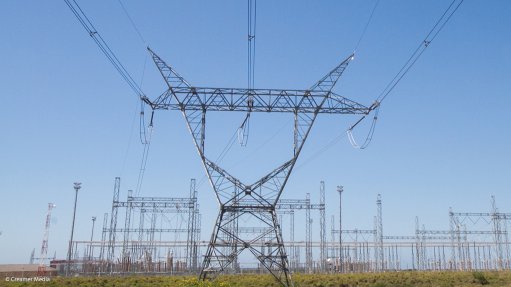Standardising best practices to develop better project managers
Through its commitment to advancing the profession, project management authority Project Management Institute (PMI) is focusing on improving efficiencies and ethical standards of asset-intensive industries by increasingly standardising best practices through its project management certifications.
Through partnering with construction and training companies, including the Lean Construction Institute, PMI is identifying gaps to be filled in various other sectors, standardising best practices applicable to them and offering these in its courses, PMI sub-Saharan Africa MD George Asamani explains.
He elaborates that key areas of focus include effective communication, the use of technology and tackling fragmentation in various industries. These practices are particularly relevant in asset-intensive industries such as mining, road construction and physical asset-focused industries.
Challenges in these industries often revolve around efficiency, environmental concerns and ethical issues, says Asamani, noting that these sectors have traditionally faced obstacles in project management.
Environmental concerns and ethical issues include considerations such as how minerals are sourced and the impact of mining and extraction on affected communities and the environment.
He explains that, in recent years, the concept of “green project management” has come into focus, with the view to embed environment-friendly practices in industries that cause substantial environmental impact through their operations.
Therefore, part of PMI’s training includes a corporate code of conduct for project manager trainees.
As such, PMI intends to develop project managers who adhere to a specific code of conduct and uphold ethical standards in their work, which can include sourcing minerals, financial management, managing community impact and upholding environmental responsibility.
Mining Project Management Dynamics
Asamani notes that the dynamics in asset-intensive industries, such as mining, need to be considered by project managers to ensure successful projects.
He highlights that generating revenue in the mining sector often takes a long time. This is largely owing to the sector following traditional project management methods whereby revenues are realised after the completion of the project. This is different from agile and hybrid project management methods, where the focus is to go to market early, with the opportunity to start earning revenues earlier.
Asamani elaborates that a mining company’s entire product offering, or mine asset, must be built according to a certain specification, with all details meticulously checked, before it can be fully commissioned.
“If this process takes two years, the company must wait that long before seeing any revenue,” he says.
However, in some projects, the revenue generated per unit of product produced can be substantial, potentially offsetting revenue lost during the waiting time, as long as the financial model is sound, states Asamani.
Therefore, he says project managers must evaluate whether profits attainable from the product being sold can compensate for the time spent getting the project into serial production, following which better financial and project decisions can be made, accordingly.
Apart from financial dynamics, Asamani emphasises the crucial role of team dynamics in the mining industry as these often differ, compared with other industries, such as those in the software development industry.
The mining industry often comprises multiple large project teams working on a significant project for an extended period.
Therefore, project managers must be able to ensure consensus on objectives, improved communication between all teams and ensure each team is able to efficiently fulfill their role in achieving the overall goal of the project.
Professional Certification
The Project Management Professional (PMP) certification from PMI, is globally recognised as the “gold standard” in project management, says Asamani, adding that the certification enhances job prospects of holders, and is often a requirement for project manager roles.
PMI’s latest Earning Power: Project Management Salary Survey results, published in November last year, show that survey respondents with PMP certification earned higher median salaries than those without PMP certification, indicating 33% higher on average.
To obtain the PMP certification, candidates must meet specific requirements including at least three years of project-related experience. Successful applicants must then pass a 180-question exam that relates to real-life project management experiences, at the end of the course.
The PMP certification is industry-agnostic, encompassing both traditional and agile project management. It offers a solid foundation in project management, enabling professionals to specialise further in areas such as construction or agility.
Asamani adds that the PMP certification is updated every two to three years to reflect the global dynamics of the project management industry, thereby ensuring its continued relevance and applicability across different environments.
“The intention is to be able to ensure that people are reflecting on the practicality of running a project, as opposed to focusing on taking an exam. It's meant to ensure that students are thinking about the theory and applying it in the real world,” he concludes.
Article Enquiry
Email Article
Save Article
Feedback
To advertise email advertising@creamermedia.co.za or click here
Comments
Press Office
Announcements
What's On
Subscribe to improve your user experience...
Option 1 (equivalent of R125 a month):
Receive a weekly copy of Creamer Media's Engineering News & Mining Weekly magazine
(print copy for those in South Africa and e-magazine for those outside of South Africa)
Receive daily email newsletters
Access to full search results
Access archive of magazine back copies
Access to Projects in Progress
Access to ONE Research Report of your choice in PDF format
Option 2 (equivalent of R375 a month):
All benefits from Option 1
PLUS
Access to Creamer Media's Research Channel Africa for ALL Research Reports, in PDF format, on various industrial and mining sectors
including Electricity; Water; Energy Transition; Hydrogen; Roads, Rail and Ports; Coal; Gold; Platinum; Battery Metals; etc.
Already a subscriber?
Forgotten your password?
Receive weekly copy of Creamer Media's Engineering News & Mining Weekly magazine (print copy for those in South Africa and e-magazine for those outside of South Africa)
➕
Recieve daily email newsletters
➕
Access to full search results
➕
Access archive of magazine back copies
➕
Access to Projects in Progress
➕
Access to ONE Research Report of your choice in PDF format
RESEARCH CHANNEL AFRICA
R4500 (equivalent of R375 a month)
SUBSCRIBEAll benefits from Option 1
➕
Access to Creamer Media's Research Channel Africa for ALL Research Reports on various industrial and mining sectors, in PDF format, including on:
Electricity
➕
Water
➕
Energy Transition
➕
Hydrogen
➕
Roads, Rail and Ports
➕
Coal
➕
Gold
➕
Platinum
➕
Battery Metals
➕
etc.
Receive all benefits from Option 1 or Option 2 delivered to numerous people at your company
➕
Multiple User names and Passwords for simultaneous log-ins
➕
Intranet integration access to all in your organisation


















